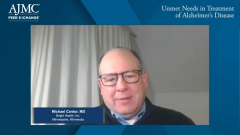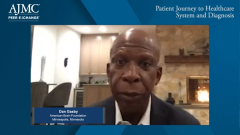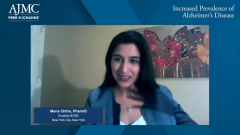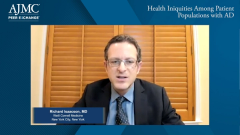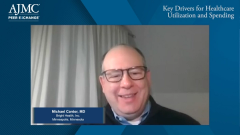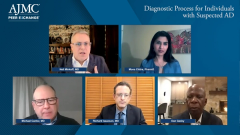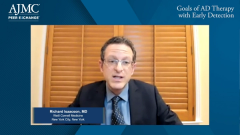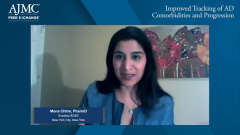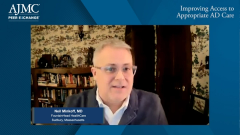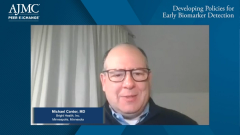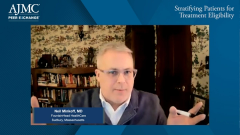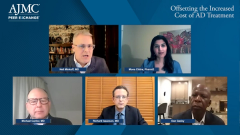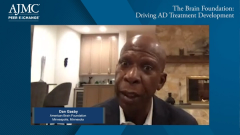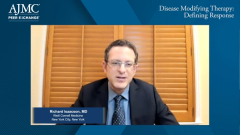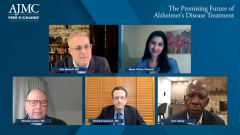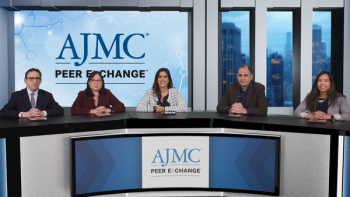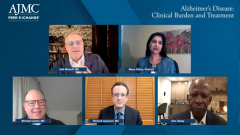
The Promising Future of Alzheimer Disease Treatment
Panelists conclude the discussion with personal insight into the promising future of Alzheimer disease treatment.
Episodes in this series

Neil Minkoff, MD: I would like everybody to give 1 or 2 parting thoughts in terms of a message you would like to leave us with or a lesson you hope we have learned specifically about Alzheimer disease, early diagnosis, treatment access, a lot of these topics we did. I will give you a second to think of that. I want to thank all of you, as we start to wrap up, for a very interactive panel and a lot of great information. I will ask Dr Isaacson, if you would be kind enough to be the first final thought?
Richard Isaacson, MD: Sure. Something that resonated earlier is the term hope, and we all want to feel hopeful. I will be honest, I feel hopeful. We understand more now than we have ever before. We have had a lot of failures in drug therapies, other treatment trials, and everything else, but we have learned from those mistakes. We now understand that the disease begins earlier, but we now have to make a paradigm shift.
I have a lot of empathy for doctors and physicians with boots on the ground. We just went through a pandemic and did not have enough PPE [personal protective equipment] and whatever other things are going on. They then have to deal with the complexity of a dementia diagnosis, or if this is a dementia diagnosis when the symptoms are so mild. They are doing this in a system that is dedicated to treating the disease rather than trying to prevent or engage early. I have a lot of empathy for physicians, but I hope that physicians and the systems around physicians can change over the coming years because we have a tsunami. It is already hitting; it is going to get worse. The earlier we can intervene, the earlier we can detect that something is wrong, then the earlier we can do something and in theory, the better the patient will do.
Neil Minkoff, MD: Dr Chitre?
Mona Chitre, PharmD: I have appreciated the time on the panel. I have learned so much, so I first want to thank this group. I would say that health care plans are preparing, so it is similar to Richard’s comment of having hope. We have learned so much, and plans are also preparing. As we have talked about ACOs [accountable care organizations] and supplemental benefits, we are working with our lines of business: Medicaid, Medicare, and commercial. We are preparing because we know the tsunami is here, and you have seen some things happen in the benefit design environment.
I will focus on the trigger point, which will be a new therapy. We will need to ensure that we work together to understand the data, understand the appropriate population, and understand the follow-ups because it will be critical, because our goal is to ensure access and affordability to all of our stakeholders. The way we can continue to do that is to ensure that the right patient gets the right drug at the right time. It seems so cliché, does it not? Neil, we have been talking about that same comment for 20 years, but it is incredibly important. The impact of indirect costs is well understood. It may not show up in a claim, but we know indirect costs related to this condition are tremendous, dramatic, and challenging. We are also hopeful for the future and how we can work together to ensure brain health.
Neil Minkoff, MD: Dr Cantor?
Michael Cantor, MD: First, thanks to the American Journal of Managed Care® for putting this panel together because I feel like awareness is the first step. Dan said it several times, and it is true. If people are not aware of this problem, and if they are not aware the tsunami is breaking on us already, then it is going to be hard to get us to work together to be successful, which is what we need to do. Awareness is the key that we need to continue pushing within health plans certainly, but also with the provider community and with the public at large.
The second thing I would say is prevention. Prevention and dementia do not usually go together in our minds. We always think, “The horse has left the barn, and it is now time to treat this. This person is going to have long-term care, so it is too late.” It is not too late, so focusing on prevention and disease-modifying therapies that can be used earlier on can deliver a significant value, especially if they are truly long-term therapies. Like high blood pressure medicine, which we talked about, potentially delivers many years of healthier life and higher quality of life. Focusing on early treatment, early diagnosis, and prevention of the complications of dementia is important.
Finally, this is a disease of the family, and it is a disease of our community, so let’s bring the resources, and let’s meet the needs of people where they live. Let’s bring this home, so people do not have to go to long-term care or require long-term support services. Let’s think about how we can use these new drugs, new technologies, and new tests in the home to support home-based care and home-based care models so that we can do this for more people at scale over time.
Neil Minkoff, MD: With that, I am going to give you the final word, Mr. Gasby.
Dan Gasby: First of all, I want to thank you for allowing me to be on this distinguished panel. I want to tell each and every one of you that I appreciate you because I know firsthand what it is like to work with something so difficult. I also want to say that stress is the most important thing you have to manage when you are a caregiver. If you have to yell, scream, curse at God, go out and punch a bag, or whatever, do it, because you are going to be OK. You take it 1 day at a time and 1 moment at a time. Like all the things we talked about, cherish your loved ones and know that the disease is doing it to them; it is not them doing it to themselves. Be able to, after you get upset or cannot take it anymore and just want to walk away, forgive yourself and come back and do it another day.
Neil Minkoff, MD: Again, that is powerful. On a personal level, I want to thank all of the different people who participated, all of our panelists, for a remarkably good discussion. I think I speak on behalf of all of our panelists when I say to our viewing audience that, on behalf of the American Journal of Managed Care®, we hope that you found this panel interesting, informative, and useful. Thank you very much.
Transcript edited for clarity.
Newsletter
Stay ahead of policy, cost, and value—subscribe to AJMC for expert insights at the intersection of clinical care and health economics.
